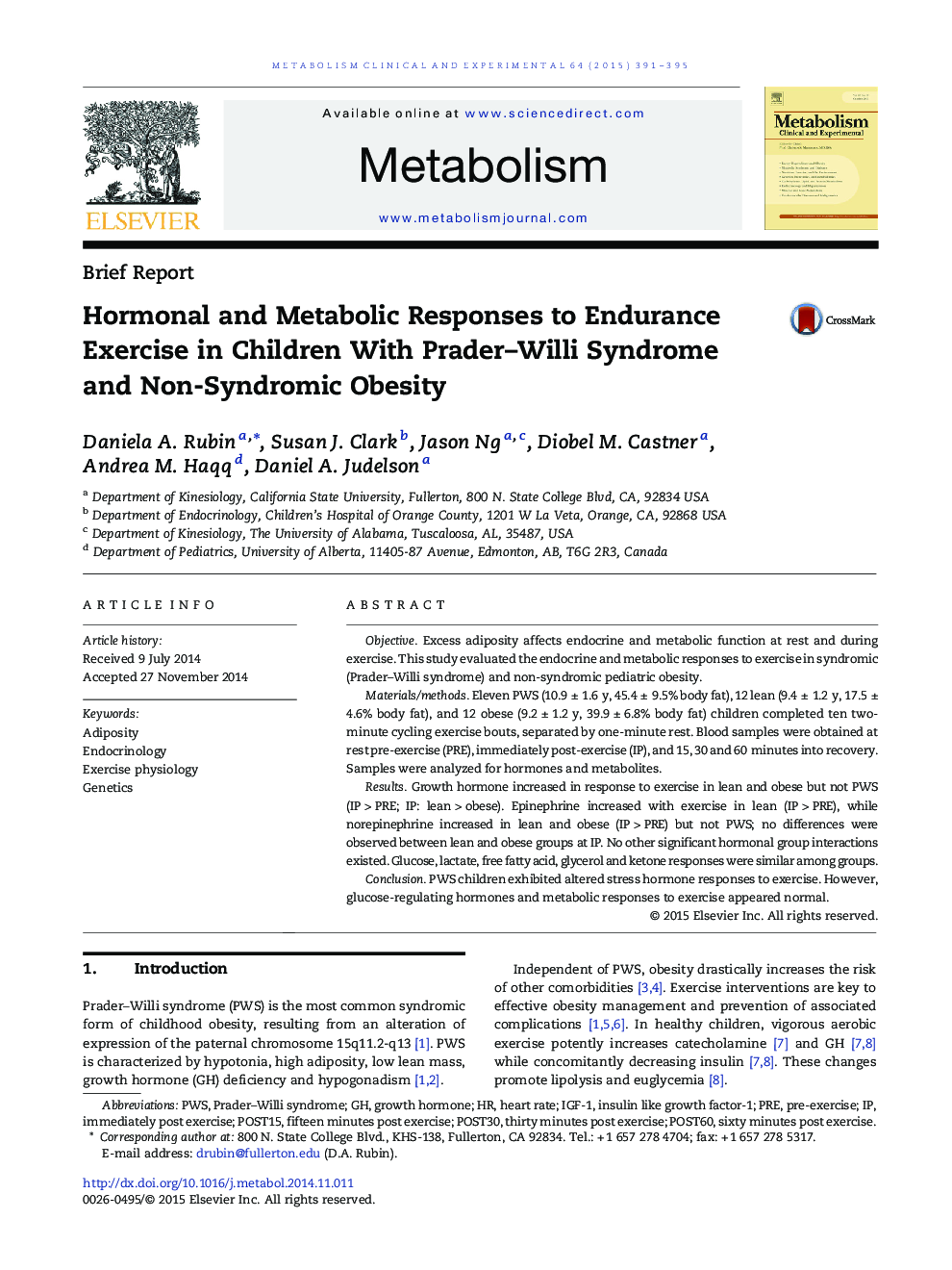| کد مقاله | کد نشریه | سال انتشار | مقاله انگلیسی | نسخه تمام متن |
|---|---|---|---|---|
| 2805718 | 1157073 | 2015 | 5 صفحه PDF | دانلود رایگان |

ObjectiveExcess adiposity affects endocrine and metabolic function at rest and during exercise. This study evaluated the endocrine and metabolic responses to exercise in syndromic (Prader–Willi syndrome) and non-syndromic pediatric obesity.Materials/methodsEleven PWS (10.9 ± 1.6 y, 45.4 ± 9.5% body fat), 12 lean (9.4 ± 1.2 y, 17.5 ± 4.6% body fat), and 12 obese (9.2 ± 1.2 y, 39.9 ± 6.8% body fat) children completed ten two-minute cycling exercise bouts, separated by one-minute rest. Blood samples were obtained at rest pre-exercise (PRE), immediately post-exercise (IP), and 15, 30 and 60 minutes into recovery. Samples were analyzed for hormones and metabolites.ResultsGrowth hormone increased in response to exercise in lean and obese but not PWS (IP > PRE; IP: lean > obese). Epinephrine increased with exercise in lean (IP > PRE), while norepinephrine increased in lean and obese (IP > PRE) but not PWS; no differences were observed between lean and obese groups at IP. No other significant hormonal group interactions existed. Glucose, lactate, free fatty acid, glycerol and ketone responses were similar among groups.ConclusionPWS children exhibited altered stress hormone responses to exercise. However, glucose-regulating hormones and metabolic responses to exercise appeared normal.
Journal: Metabolism - Volume 64, Issue 3, March 2015, Pages 391–395